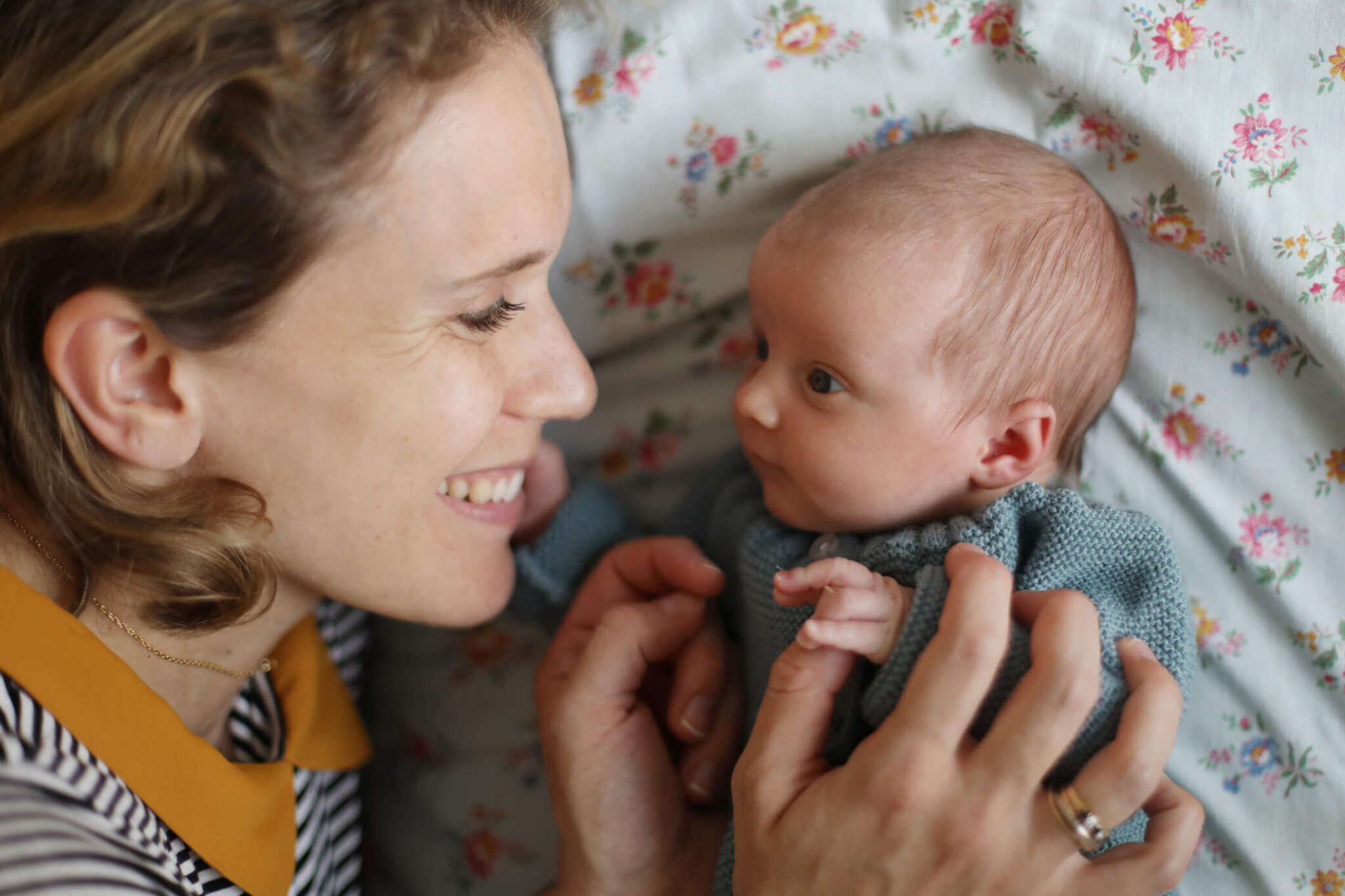Whoever came up with the saying about “sleeping like a baby” probably didn’t have the same experience as most of us with newborns! Sleep is a significant issue in most households after bringing a new baby home, yet there are many conflicting opinions about sleep-training newborns.
As a leading nanny staffing agency that connects tired parents with professional babynurses, here’s our take on newborn sleep training and how to sleep-train a newborn gently and effectively.
What Is Newborn Sleep-Training?
The idea behind sleep training newborns is that babies aren’t born knowing when it is the right time to sleep or understand how sleep impacts how they feel. Many babies need guidance to learn the difference between day and night, when to nap, and how to fall back asleep when they wake up in the middle of the night.
Some people define “sleep training” as letting a baby cry it out without comfort until they fall asleep or for increasing amounts of time. However, there are many newborn sleep training strategies beyond just “cry it out,” including more gentle training methods.
When to Sleep Train a Newborn
There is no set age for when to sleep-train a newborn, so the “right” time is when parents and caregivers can commit and stick to a sleep-training program. Before starting sleep training, research the various methods, consider any upcoming trips or events that may add extra challenges, and plan for up to a month to commit to training fully.
Many experts say that sleep training a baby tends to be most successful when the baby is four to six months old. This is because the newborn phase, from birth to six weeks, is more about getting as much sleep as possible whenever you can. Babies begin learning about schedules and routines around the ages of two to three months, setting the foundation for healthy sleep habits and bedtime routines.
Methods for How to Sleep Train a Newborn
Consider these popular sleep training methods, and choose one that works for you and your baby.
Chair Method
The chair method involves sitting in a chair or lying on the floor next to your crying baby, moving away, and finally out of the room. However, babies may be troubled when they wake up and find no one with them anymore.
Pick-Up, Put-Down Method
This gentle sleep training method involves picking up the crying baby and holding the baby until calm before placing the baby back in the crib. You may need to repeat this process several times per cry session.
Fading Method
Another idea for how to sleep-train a newborn involves paying attention to the baby’s sleep cues and using them as a bedtime indicator. Once this is established, you can gradually increase or decrease bedtime by 15- to 30-minute intervals.
Ferber Method
The Ferber method involves letting babies cry but only for a certain amount of time before going in to soothe them. You can gradually increase check-in times from two minutes to five and 10 minutes, but keep check-ins less than one minute each.
Cry-It-Out Method
This method can be effective for newborn sleep training within just a few days, but it is controversial and not suitable for every parent. You must learn to ignore your baby’s crying with this method so the baby learns to self-soothe and fall asleep independently.
Preparing for Sleep-Training a Newborn
Here are some tips to prepare in advance for sleep training a newborn:
- Set up your newborn’s room for sleep and relaxation
- Create a bedtime routine, perhaps with swaddling, bathing, rocking, and a sleep sack
- Search for nannies and babynurses near you
- Hire a newborn care specialist
- Work with a sleep coach or consultant
- Talk with other parents about what worked for them
Keeping Up with Sleep Training
After you have successfully sleep-trained your baby, the first thing to do is celebrate and finally get some rest yourself! Then, prioritize consistency and stick to your new routine as much as possible to maintain healthy sleep habits. Babies undergo various sleep regressions and growth transitions, so what works now for sleep might not work in just a few months.
Be flexible, patient, and adaptable with sleep as your little one develops, and keep Pavillion in mind for all your nanny needs in the future. Contact us to learn how we can help with newborn sleep training.




